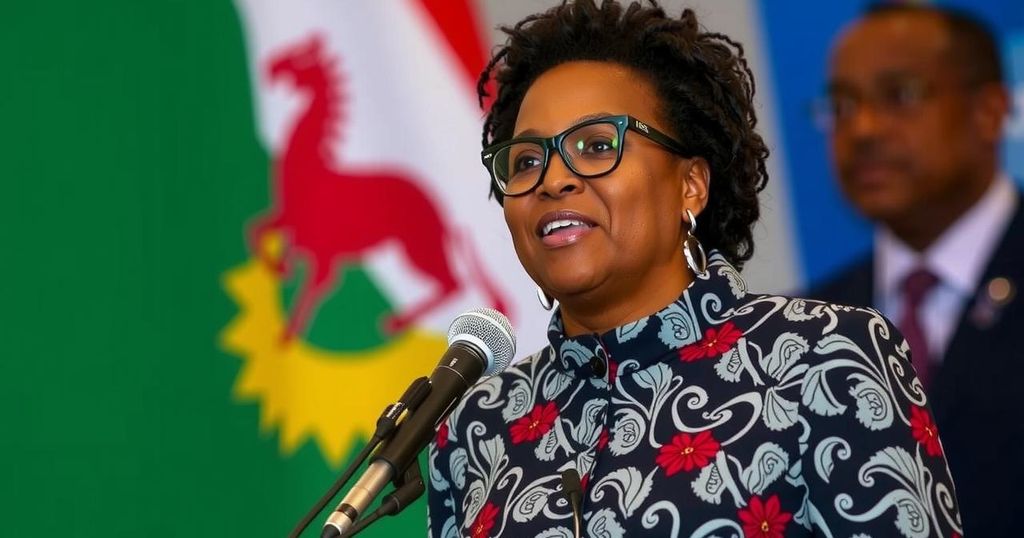Namibia’s recent presidential election, held on November 27, 2024, saw Vice President Netumbo Nandi-Ndaitwah of SWAPO leading early results amid significant voting irregularities. The election experienced technical problems resulting in an extension of voting and accusations of illegality from opposition parties, who plan to contest the results. The situation reflects growing dissatisfaction with SWAPO’s governance, especially concerning economic challenges and allegations of corruption.
In the recent presidential election in Namibia, Vice President Netumbo Nandi-Ndaitwah, representing the ruling South West Africa People’s Organization (SWAPO), has taken the lead according to the initial results. The electoral process, however, has been fraught with challenges, including technical difficulties that led to an extension of voting over three days. Opponents of the ruling party have raised complaints, declaring the results tainted by these irregularities, which sparked disputes over the legality of the election’s conduct.
The election, taking place on November 27, 2024, witnessed significant issues such as a shortage of ballot papers, prompting electoral authorities to keep certain polling stations open until November 30. The results revealed Nandi-Ndaitwah acquiring approximately 56% of the counted votes, while her major contender, Panduleni Itula from the opposition Independent Patriots for Change, secured about 27% from the published tallies. Despite the promising numbers for Nandi-Ndaitwah, doubts loom over the integrity of the election amid accusations from opposition groups of misconduct and illegal extensions.
Namibia, known for its stable democratic practices and governance by SWAPO since independence in 1990, faces heightened scrutiny regarding the election’s fairness. The economic discontent among citizens, particularly the high unemployment rate and issues of government corruption, contribute to growing frustrations against SWAPO. Potential legal challenges to the election results are anticipated from the Independent Patriots for Change, which claims to uphold the democratic principles essential for the governance of Namibia.
McHenry Venaani, leader of the opposition Popular Democratic Movement, emphasized the importance of democracy, stating, “It is about our country, it’s about our democratic credentials, it’s about the country that must work for everybody, the poor and the rich. It cannot only work for those who want to remain in power by hook or (by) crook.” Amid these developments, the Electoral Commission of Namibia insists that a rerun of the election is not plausible despite calls from the opposition. As global political landscapes shift, Namibia’s election will be closely monitored, reflecting broader themes of governance and public sentiment in Southern Africa.
Namibia’s political landscape has historically been characterized by relative stability and democracy, particularly since the country gained independence from apartheid South Africa in 1990. The SWAPO party, which has maintained power since then, is now facing challenges from various opposition parties amid economic difficulties and issues of governance. As voters participate in elections, citizen engagement and the electoral process are critical to ensuring the legitimacy and health of democracy in the region. The dynamics within Namibia come at a time when other southern African nations have also experienced shifts in political power, thus raising questions about the ongoing status of SWAPO and its long-standing governance.
The ongoing presidential election in Namibia presents a crucial moment for the nation amidst allegations of electoral misconduct and dissatisfaction with the current ruling party. While Vice President Netumbo Nandi-Ndaitwah may likely be the first female leader of Namibia, the path towards her leadership remains clouded with uncertainty following the election’s procedural issues. The reactions from opposition parties signal potential legal battles ahead, underscoring the importance of maintaining democratic integrity in ensuring trust and confidence in governance.
Original Source: apnews.com






